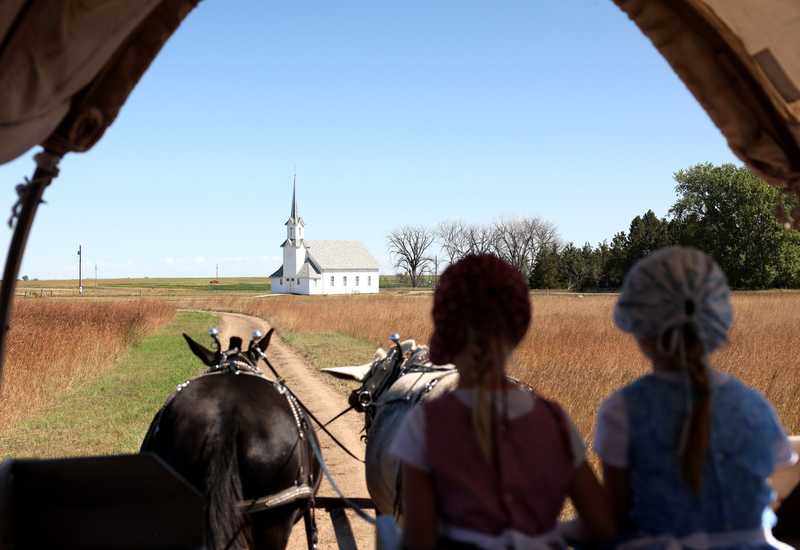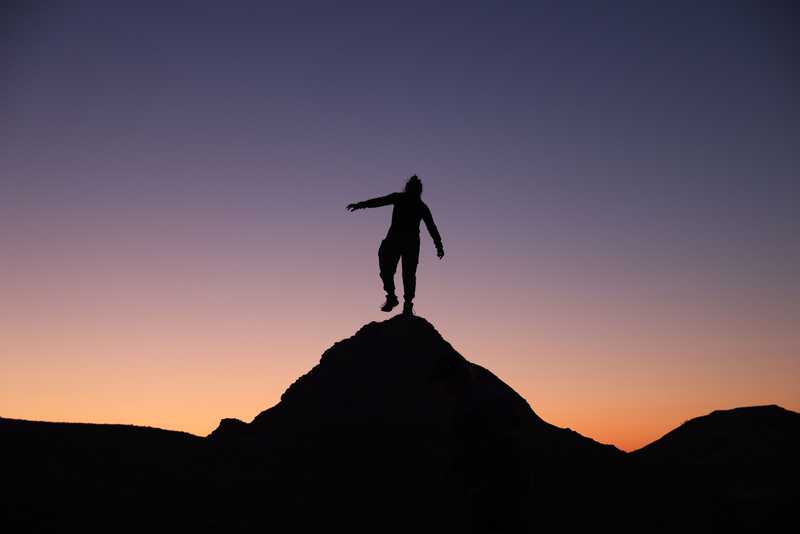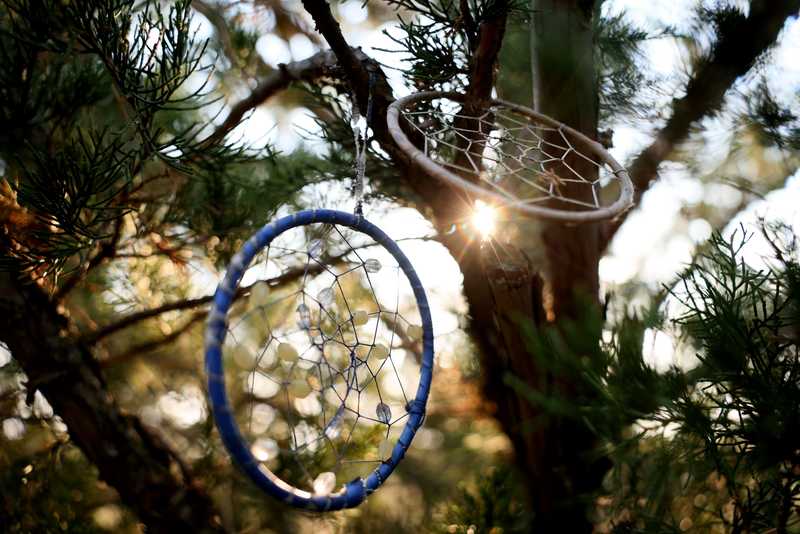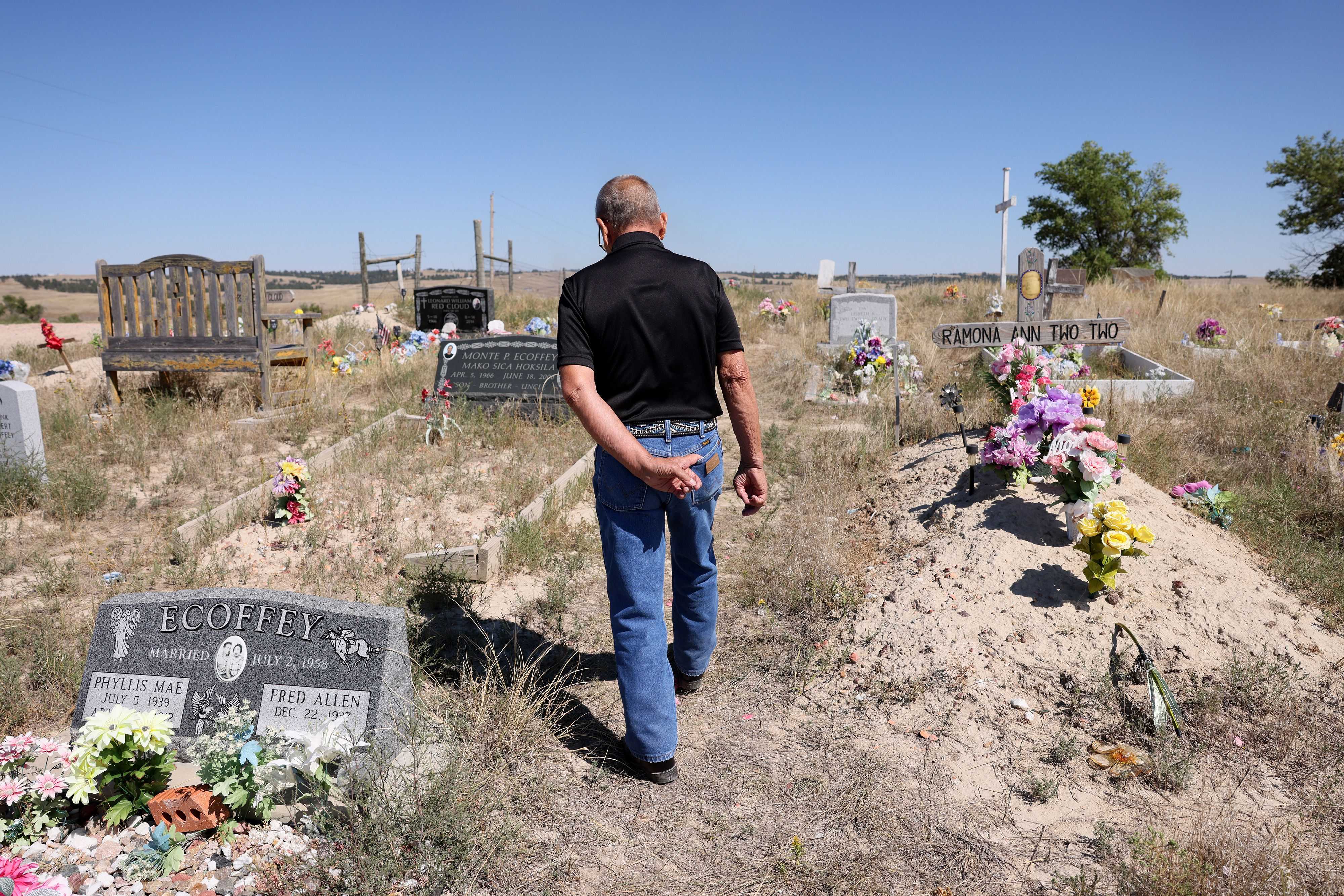
Seattle team
Oct. 31, 2022
As a jockey, he’s won 2,683 horse races. The toll on his body tells the story.
PINE RIDGE RESERVATION, S.D. — A legendary Lakota horseman lives near Wounded Knee. He has a poorly healed rib poking out against the skin of his torso and a long scar curving from the left corner of his mouth toward his right eye, a reminder of 62 stitches. His left knee is slightly bigger than his right; the ligaments inside are shot. Knotty bumps along his collarbone convey all the times it has broken and healed, and broken and healed.
His name is Fred Ecoffey, and the 85-year-old former jockey was declared winner at horse racing tracks 2,683 times, most often in Nebraska and more often than anyone else in that state’s history. The South Dakota native first barreled out of the gates in 1957 on a horse named Baby Sweeper. He kept doing so astride other thoroughbreds 17,521 more times over his 26-year career, despite being laid up for years-long stretches recovering from injuries.
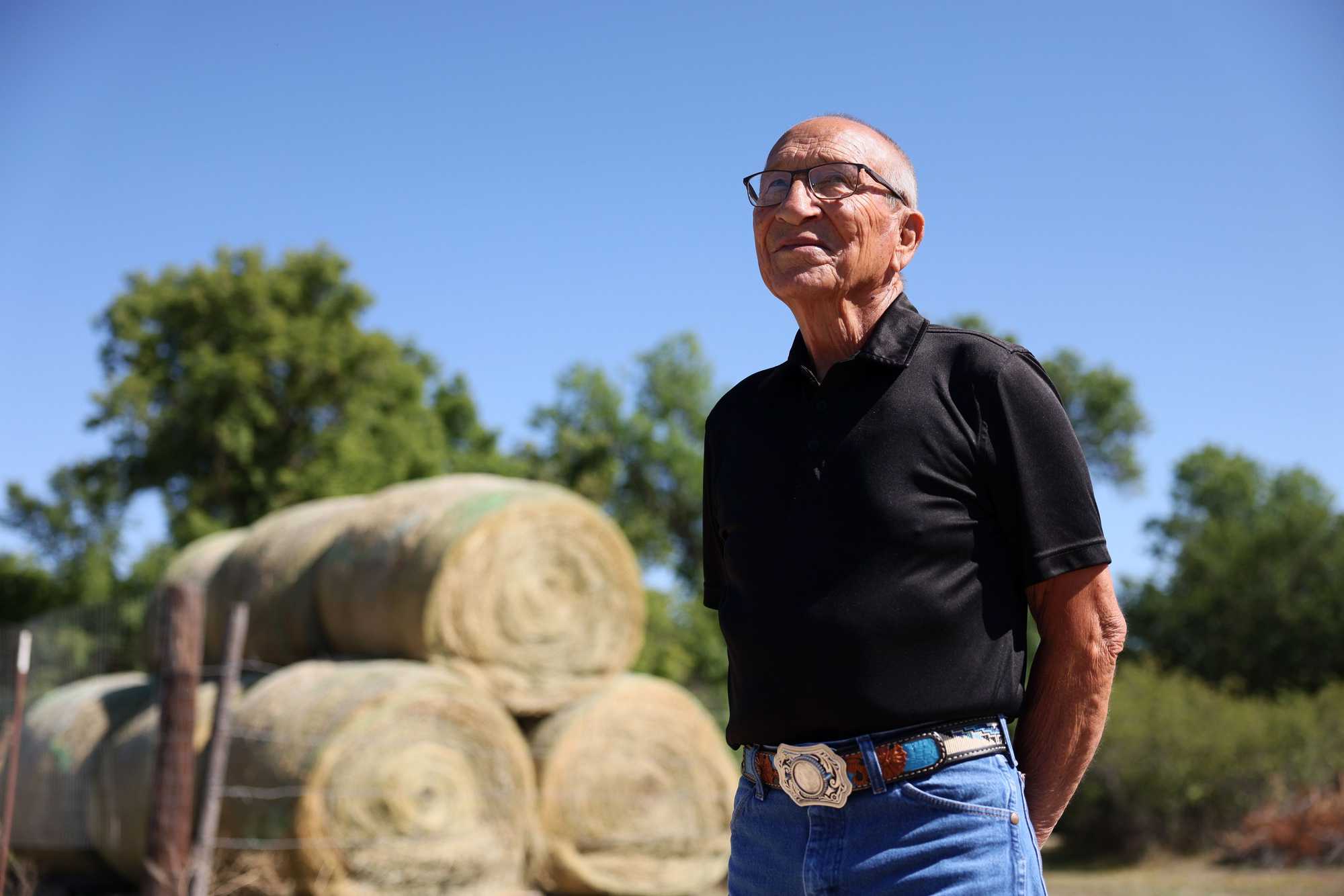
Ecoffey does not volunteer these statistics. They need to be pried out of him, one story, one race, one horse at a time. He embodies the Lakota virtue of humility — or unsiiciyapi — and prefers to discuss his horses, his family, his late wife of 53 years, Phyllis, and his love for this beastly, beautiful land that he’s never been able to shake.
Ecoffey mostly stayed around Nebraska horse tracks, though his talent could have taken him anywhere. Once in New Orleans, the fire chief escorted him and a few other riders around the French Quarter after the races. They dipped into the jazz bars and debauchery of Bourbon Street. Ecoffey despised the place and its humidity. Accustomed to the dry cold of Nebraska, he returned from Louisiana crippled with pneumonia.
“I was always so lonesome for home,” he told me.
He loved horse racing for the thrill, yes, but especially because it let him build his home here on the Pine Ridge Reservation, support his four kids, and care for his wife when the lung disease began to win.
The reservation is an embattled place, though some of the scars are difficult to see. There’s Stronghold Table to the north, a mesa in what is today the Badlands National Park, where the last public Ghost Dance took place after Army officers slaughtered some 300 Lakota in the Wounded Knee Massacre in 1890. There’s the rundown hilltop cemetery where those Lakota were buried in a yards-long mass grave. There are the hills where followers of the American Indian Movement roamed during their 71-day occupation of Wounded Knee in 1973, a land reclamation protest that ended with federal agents killing two Sioux men.
Ecoffey knows all this about his land. But to him, that cemetery is also where his wife rests, and where he still comes to talk to her, like he did over their 53 years of marriage. It’s where one day he was sitting on a bench near her grave after sunset — still as a statue — and a group of wandering kids spotted him and exclaimed in genuine boyish terror, “It’s a dead man!” Ecoffey erupted in a fit of laughter then and still does when telling the story today.
And those hills? He heard the screams and the sirens that carried over their ridges in 1973 and met a reporter who stopped after getting lost on the way to cover the protest. “Where exactly is Wounded Knee?” the bewildered man had asked. But Ecoffey usually thinks first of those hills as an ideal landscape for conditioning horses headed to the track, barrels, or Indian relays.
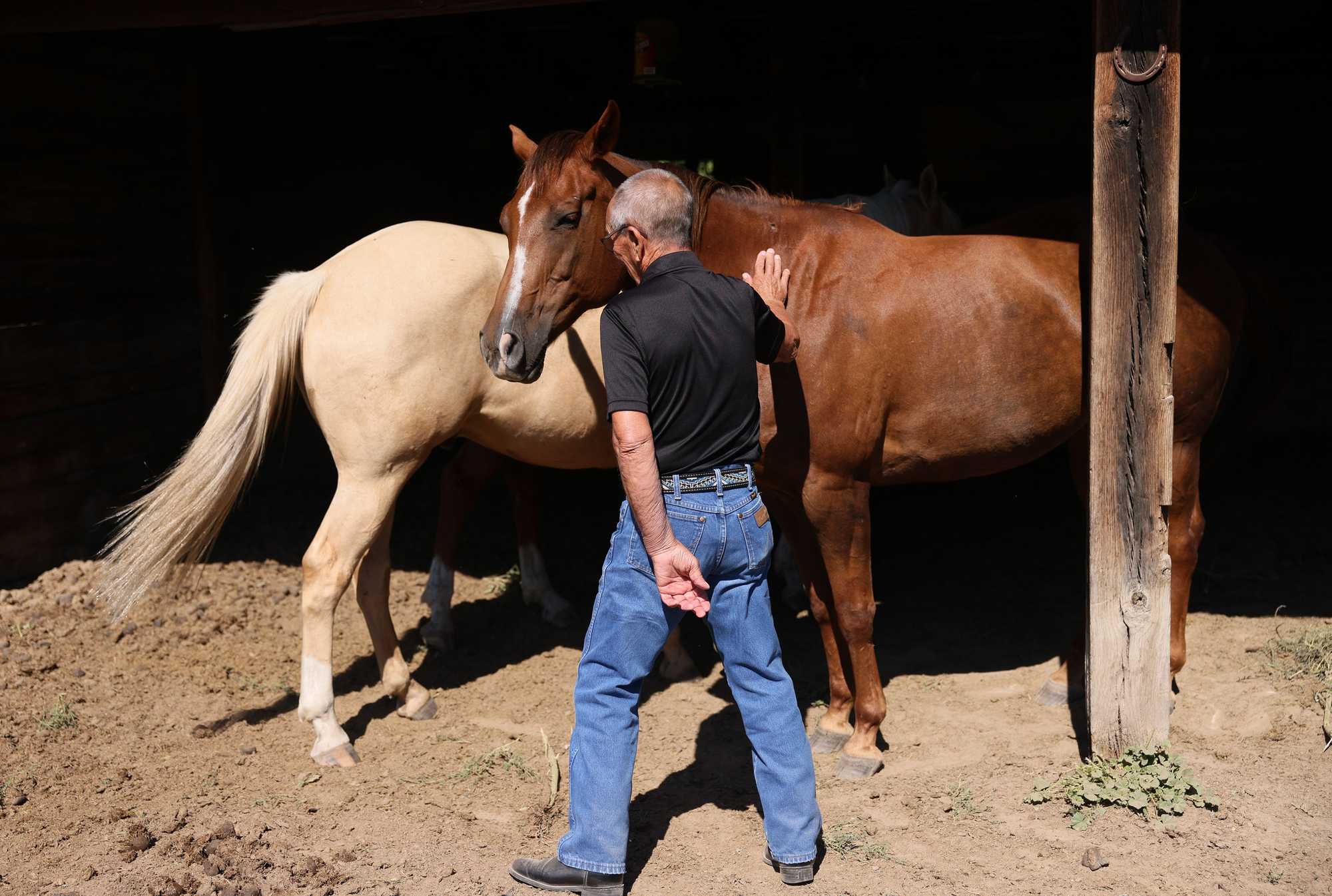
Recent stories from the Seattle team
And it was from these hills that his daughter’s horse, Barbie, emerged the day I visited in early September. Ecoffey spotted the chunky palomino through his living room window and rummaged through the fridge for some carrots. He jogged out of the house, unlatched the front gate — it keeps his roaming burro from wreaking havoc on the front yard — and yelled, “Barbie! Barbie!” She trotted right on by and Ecoffey just laughed.
I wondered how he could laugh and jog, or even stand up, after two decades in one of the grisliest professions on earth, living in the poorest county in the country. But Fred Ecoffey doesn’t complain.
He’s a man who has been chewed up, spit out, and somehow still is walking. And if he’s still walking, he figures, that’s reason enough to be still smiling.
Ecoffey ran his final professional race at the age of 46. There was no fanfare. He just turned the corner into the final stretch at AkSarBen racetrack in Omaha and hesitated. Fear had always been a furlong behind, and now it was ahead by a nose.
“I made up my mind then and there that it was time for me to retire,” Ecoffey said. “I’d gotten leery and that’s no way to ride. It was time to go home once and for all.”
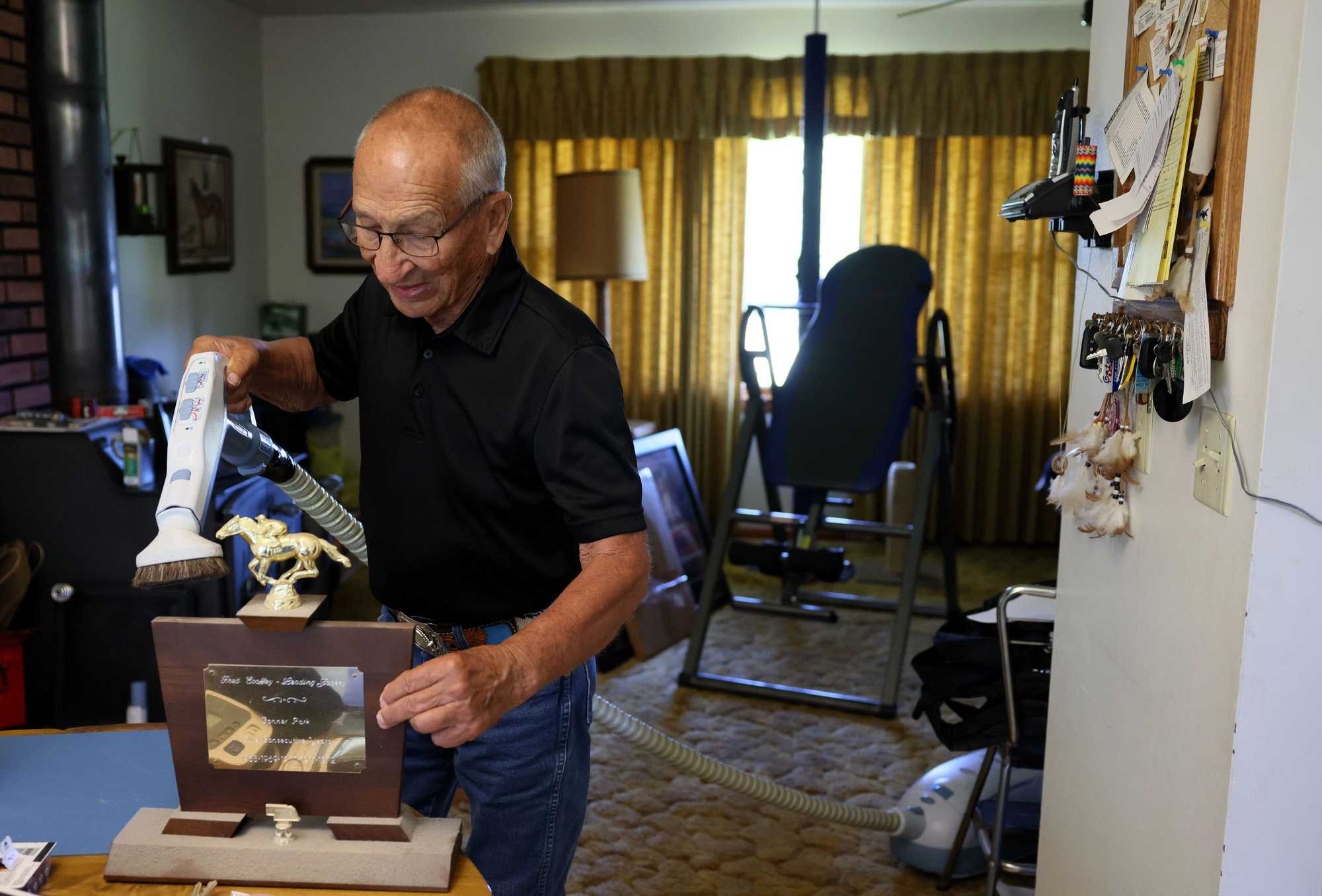
Join the discussion: Comment on this story.
Credits
- Reporters: Julian Benbow, Diti Kohli, Hanna Krueger, Emma Platoff, Annalisa Quinn, Jenna Russell, Mark Shanahan, Lissandra Villa Huerta
- Photographers: Erin Clark, Pat Greenhouse, Jessica Rinaldi, and Craig F. Walker
- Editor: Francis Storrs
- Managing editor: Stacey Myers
- Photo editors: William Greene and Leanne Burden Seidel
- Video editor: Anush Elbakyan
- Digital editor: Christina Prignano
- Design: Ryan Huddle
- Development: John Hancock
- Copy editors: Carrie Simonelli, Michael Bailey, Marie Piard, and Ashlee Korlach
- Homepage strategy: Leah Becerra
- Audience engagement: Lauren Booker, Heather Ciras, Sadie Layher, Maddie Mortell, and Devin Smith
- Newsletter: LaDonna LaGuerre
- Quality assurance: Nalini Dokula
- Additional research: Chelsea Henderson and Jeremiah Manion
© 2022 Boston Globe Media Partners, LLC
